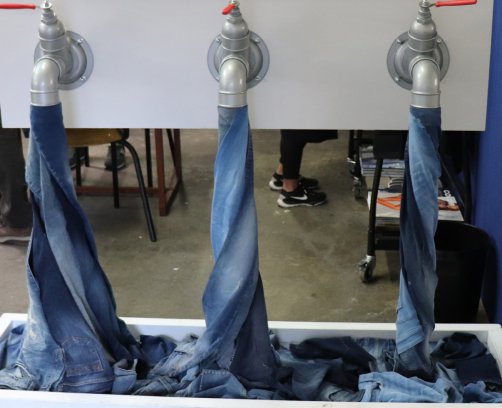
Lightweight solution for tomorrow’s transport networks
Climate action has to be a shared responsibility rather than just a supplier burden, report emphasises.

18th December 2023
Innovation in Textiles
|
New York
There is a worrying disconnect between the textile industry’s pursuit of Science-Based Targets (SBTs) and the feasibility and equity in garment supply chains, according to a new report from the New York-based Transformers Foundation, a leading advocate for sustainable practices within the denim industry.
The report, Towards A Collective Approach: Rethinking Fashion’s Doomed Climate Strategy, addresses critical issues within the fashion sector’s climate initiatives and calls for a collective approach to tackle the challenges of decarbonisation.
It asserts that carbon mitigation will stall if suppliers are not only expected to do most of the work to decarbonise, but to pay for it too, and given new regulatory developments likely to impact the industry there is an urgent need for a more equitable and practical approach. The report also warns against enshrining SBTs into law.
Given new regulatory developments likely to impact the industry there is an urgent need for a more equitable and practical approach
While Transformers Foundation supports the collective objectives of the Paris Agreement, its research suggests that an approach must evolve to ensure practicality, fairness and shared responsibility. This means ensuring that responsibility for climate action is shared rather than a supplier burden.
“The current approach to climate action makes it a supplier responsibility, rather than a collective responsibility,” says co-author Kim van der Weerd, intelligence director at Transformers Foundation. “This is not only inequitable, but also impractical and doomed to fail. By putting forward a definition of collective action, our report gives a framework for how we could accelerate action.”
Elaborating during the recent WTIN Innovate Carbon virtual forum held from Decmber 5-6, van der Weerd said that more than 80% of a brand or retailer’s emssions occur in what is known as Scope 3 which they do not directly own.
“For an apparel producer or denim mill to decorbonise at the same rate is a much taller order and the contextual situations in different locations vary enormously,” she said. “The question of who foots the bill is seldom asked because most of the changes have to be made at the production stage.
“There are some investments that could be made that would generate payback relatively quickly but others that have extremely long or even no payback, which is not generally understood. Such investments also increase operating costs that would result in higher prices, but these manufacturers have no insight into their future orders from the retailers and brands. They are responding to requests for change coming from one part of the world that have to be made in another without a full relisation of the complexity of the situation.”
The report, which includes in-depth interviews with denim suppliers and stakeholders from major garment-producing nations, offers valuable insights into how the fashion industry can rethink its climate strategy. It can be read in full here.

Business intelligence for the fibre, textiles and apparel industries: technologies, innovations, markets, investments, trade policy, sourcing, strategy...
Find out more